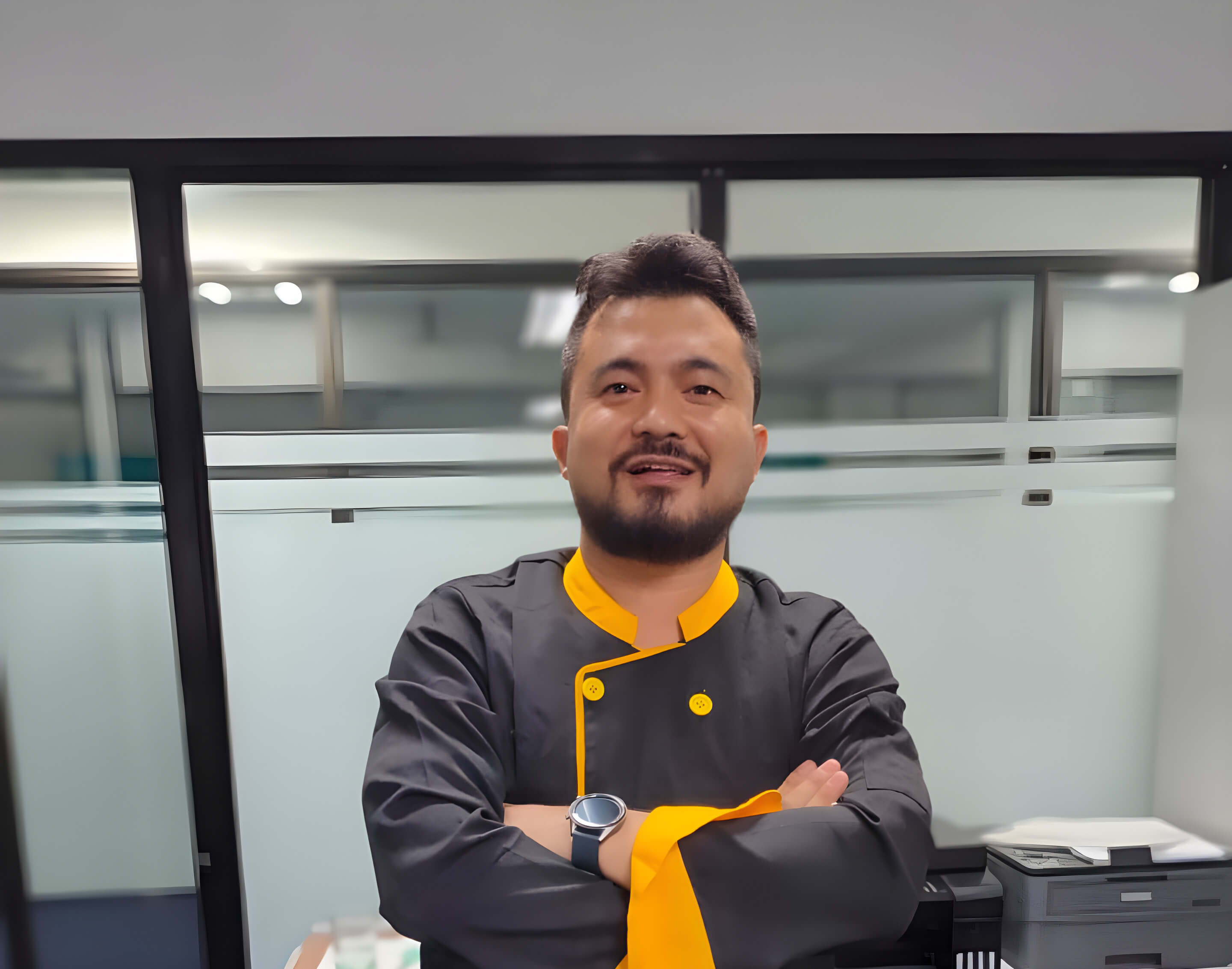




Richard Regaspi was a migrant worker in the United Arab Emirates for 13 years before the COVID-19 pandemic hastened his return to the Philippines. It was a tough transition, but the move back allowed Richard and his wife to grow their young business and start a new one.
During Richard’s stay in the UAE, he took on many different jobs, first working as a lifeguard at a five-star hotel in Abu Dhabi and ending up as operations manager of a health club in Dubai. These jobs allowed him to comfortably raise a family in the UAE while helping his parents back home.
Richard recalled, “I worked as a lifeguard for two and a half years. As a lifeguard in the Middle East, I worked outdoors in extreme temperatures of 40 C to 50 C. I knew it wasn’t going to be a lifetime career, so I thought of ways to advance my career. I trained and improved myself constantly. I accepted all the challenges thrown my way, even if they’re outside of my job responsibilities. Nothing was too menial for me.
“It paid off. A supervisor who appreciated my work ethic offered me a job when he moved and became a manager in another hotel. Even though it paid less, I accepted it for the supervisory role. In total, I had five jobs when I was in UAE, moving up the ladder along the way. In my last job, I was operations manager for a health and safety training centre.
“I struggled to adjust to a foreign work environment in my first two years abroad. But I knew that to succeed, I had to work well with people from different backgrounds. Humility, respect, and knowing your place are important. It’s all about respecting people, no matter the nationality.”
The global pandemic shutdown was a fork in the road for Richard. He was faced with a difficult choice of staying in Dubai or going back to the Philippines to reunite with his family.
“My wife and kids were already in the Philippines when the pandemic hit,” Richard said. “They returned in 2019 so our kids could go to school there, while I stayed in Dubai. We also decided that my wife would run full-time the business we put up in 2018. It’s a training centre called Health and Safety Solution. It’s a business we know inside out because of our previous jobs as safety trainers. We used our savings to start the business.
“The idea is to get the kids set up for school and get the business up and running, while I continue working abroad so that we have a stable income to fall back on in case the business did not prosper.
“When the COVID-19 pandemic shut down all businesses in March 2020, I kept my job, but received only a fourth of my salary in the first few months. By June 2020, I stopped getting any salary at all. There was so much uncertainty. I was worried that we might not survive the pandemic and I wanted to be with them (family). That, along with losing my income, made me decide to go home. I packed up and left in October 2020.”
At that time, Richard said he still meant to return to the UAE. He planned to support his wife with their new centre and eventually go back when the pandemic is over.
Richard narrated, “It was really a struggle for a while. We had to pay the staff salary, the rent, utilities, and internet every month, but we had no income coming in because of the pandemic. It was fortunate that the Department of Labor and Employment accreditation came through in 2020. We got permission to conduct online training. It actually benefited us because online courses allowed us to accept clients from outside of Metro Manila and abroad. That is the reason the business survived.”
At the height of the pandemic, Richard stumbled on a new business venture. In the UAE, biryani, a South Asian rice dish, became his “comfort food.” It was a craving he could not satisfy back in the Philippines. None of the biryani he tried from different vendors captured the flavours he was looking for, so he learned to make it himself.
“A friend encouraged me to make biryani to my taste, so I did. I shared it with friends and they loved it. Soon, I was receiving a lot of orders from friends, their friends, and so on. Since it was still in the middle of the pandemic, I decided to create a facebook page to advertise my business.
“By the third month, I had so many orders, my small kitchen couldn’t accommodate my food preparation anymore. I had to buy additional burners, tables. I had to hire a staff just to respond to orders and handle food delivery bookings.”
With his online food business doing so well, Richard reconsidered his plans to return to Dubai. Instead of going back, he pitched the idea of opening a restaurant to his wife. His wife was initially resistant, as the training centre was also just in its infancy. But Richard was convinced he could make the restaurant a success. In the end, his family supported his decision.
Richard related, “We went to the banks for a possible loan, but got rejected because we had no credit record, having lived abroad for many years. So aside from the money we had earned from the online food business, we had to dip into our emergency savings to open the restaurant.
“We ended up renting two stalls in the food hub in Quezon City in 2021. At that time, the government had eased the quarantine restrictions and allowed 30 per cent dine-in capacity. Of course, we kept selling online, and we reinvested the earnings from this into the business.
“We expanded our restaurant space in Quezon City, then opened our second branch in 2022. We recouped our investment for the first branch and that’s what we used as capital for our second branch.”
Richard said he and his wife wanted the restaurant to be a legacy that can be passed on to their children, so they made sure that the quality and taste of the food are first-rate and thought carefully about the branding.
“We started looking into the supply chain stability. In the beginning, we bought spices from Indian stores, but the mark up was so high so we started looking into warehouses, wholesalers, exporters. We asked friends from UAE to bring ingredients that we cannot buy here. We want the taste to be as authentic as possible, and give our clients value for money. Our food may cost more, but the taste and the generous portions are worth it.
“We wanted our brand, the Golden Rice Hyderabadi Biryani Restaurant, to make an impact, to make our product different from other sellers. We are the only Indian restaurant that has our own unique packaging for takeout. The service of our staff is also excellent.
“We don’t look at the immediate profit. We believe in delivering a quality product and we believe that to be able to gain the market, you should be willing to lose some. We are not looking at it short-term. In the future, we want to open multiple branches.”
Richard believes that success comes from continuously improving oneself, pursuing one’s passion with integrity, and taking advantage of opportunities when they arise. Still, he said the government should give a leg up to returning migrant workers by helping them access bank loans or funding assistance to translate their talents and skills into viable businesses.
The views and opinions expressed in the text belong solely to the interviewee and do not reflect the official policy or position of ASEAN.








